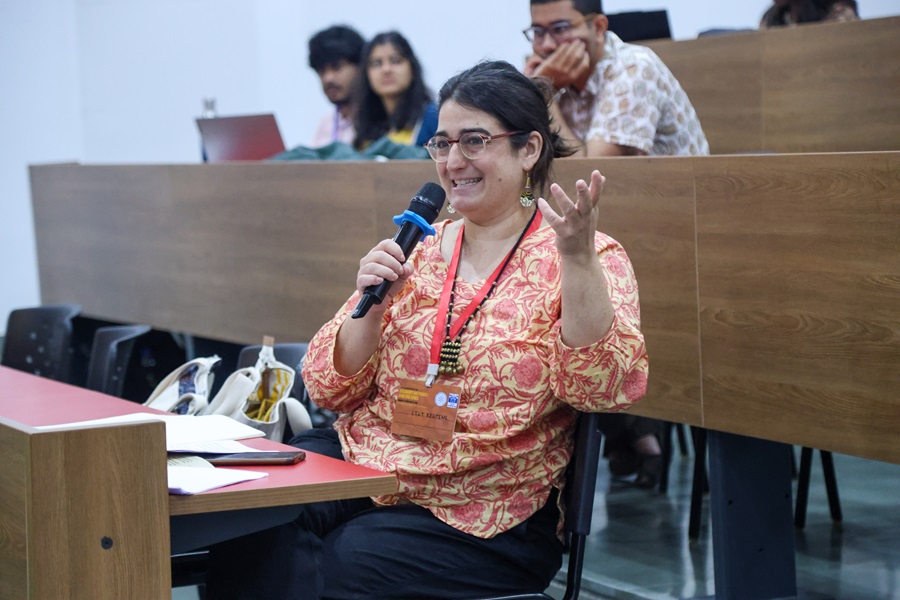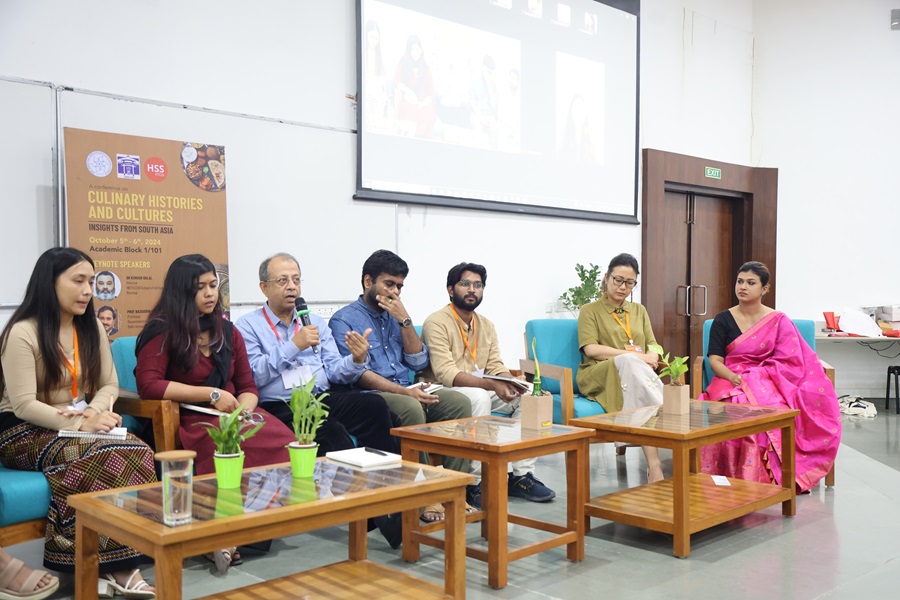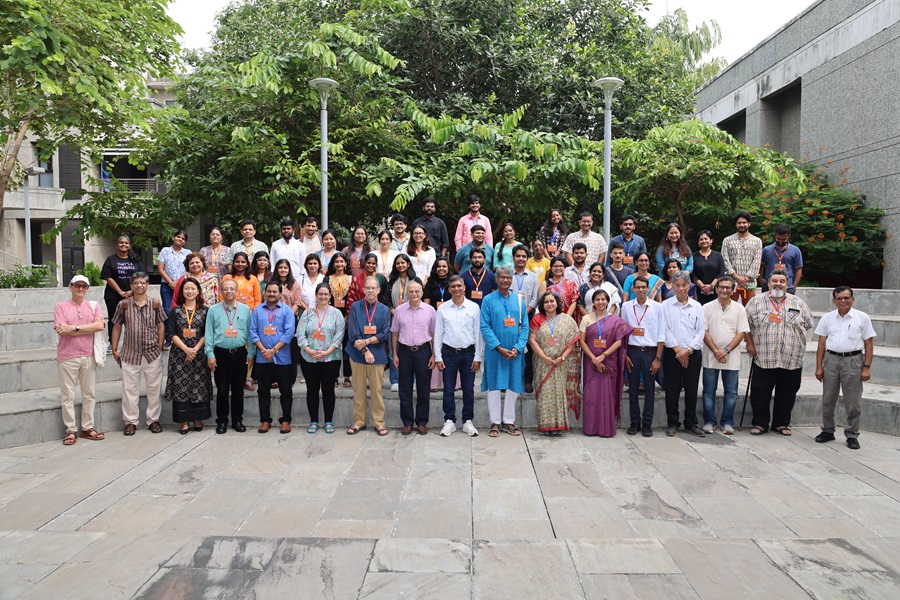STORY CREDITS
Writer: Vanajakshi B.H.
Photo: IITGN Photos
A two-day conference titled “Culinary Histories and Cultures: Insights from South Asia” was hosted at IIT Gandhinagar from October 5 & 6, 2024. The conference allowed historians, and archaeologists from India and beyond to share their thoughts on the rich culinary histories and traditions of the region, and to explore how food intersects with identity, caste, migration, and other social dynamics.
The conference was funded partly by the Department of Humanities and Social Sciences, IIT Gandhinagar, and with financial support from the Archaeological Survey of India through the ASI Archaeology Chair Endowment Fund set up at IIT Gandhinagar.
The conference is the first of its kind in India to bring Archaeology and History together, in addition to conducting a dialogue between scholars working on the Ancient, Medieval and the Modern periods. The conference was convened by Dr Madhumita Sengupta, from the Department of Humanities & Social Sciences, and Dr Sharada CV and Dr V.N. Prabhakar, from the Archaeological Studies Centre, affiliated to the Department of Earth Sciences.
Dr Sengupta opened the event with a welcome address, highlighting the crucial role culinary histories play in understanding the socio-political landscapes of different regions. She spoke about the deep connections between food, caste, and power structures in societies, setting the tone for the discussions to follow.
The inaugural lecture was delivered by Professor Tanka Bahadur Subba, who emphasised the growing relevance of food studies as a discipline. He discussed how food offers insights into various socio-political identities, such as caste and gender, and its importance in understanding historical and social nuances.

The Keynote and Plenary speakers included eminent scholars, like Dr Kurish Dalal, Dr William Belcher, Dr Raziuddin Aquil, Dr Jayanta Sengupta, Dr Lily Kelting and Dr. G.S. Abhayan. They spoke on a fascinating array of themes such as the archaeology of food, fish and fishing in the Harappan age, fasting and food practices within the Sufi tradition, Culinary nostalgia and the imagining of a homeland, and the millet revolution.
The conference was attended by doctoral students and college teachers from institutions such as Jawaharlal Nehru University, Delhi, IIT Kanpur, IISER Bhopal, Rajiv Gandhi University, Arunachal Pradesh, Kannur University, Kohima College and so on. International students came from institutions like the École Normale Supérieure, Pisa, Italy and Uppsala University, Sweden. Within the country participants came from as far afield as Ladakh, Arunachal Pradesh, Nagaland, Kolkata, Bhopal, Kerala, UP and so on.

The themes of their presentation ranged from the history of Yarkhandi Pulao among the Ladakhis, to pork and beef eating among the Nagas, to the consumption of Khar and Tenga by the Assamese, to Onam food in Kerala, to food consumed by certain tribes in Kerala, to beef and pork eating by the Bauri communities in Bengal, to representations of food in the early Sangam literature, to the results of lipid analysis of Harappan pottery, to public dining in Western India, to food and Partition in Bengal, to food in the Ni’maatnama of the Sultanate of of Mandu, to the marginalization of Dalit food, and so on.
This two day long conversation among scholars from Ancient, Medieval and Modern India was very illuminating and created a platform for showcasing emerging areas of research, for providing many new research insights to young scholars, and for bringing Archaeologists and Historians from the three periods together for the first time in the county’s long history.

